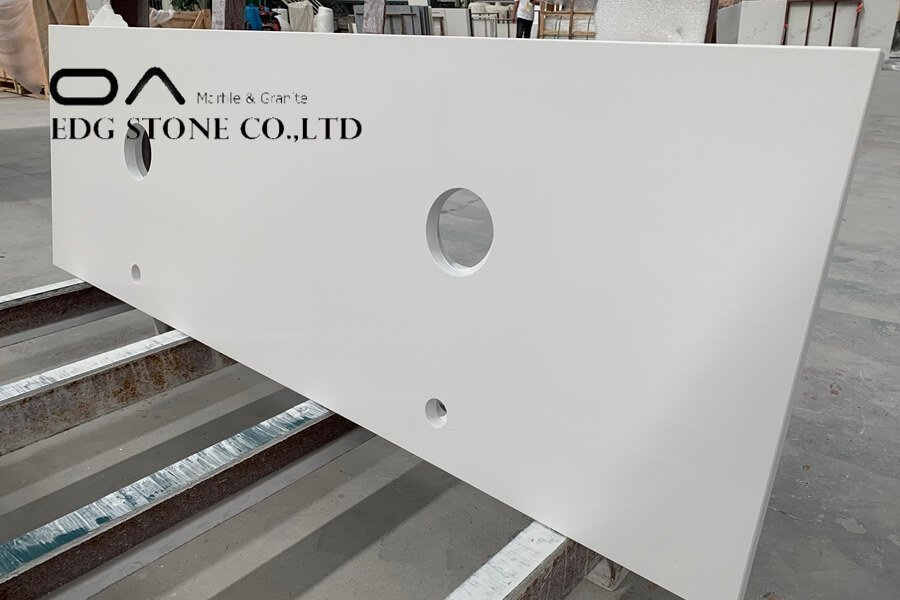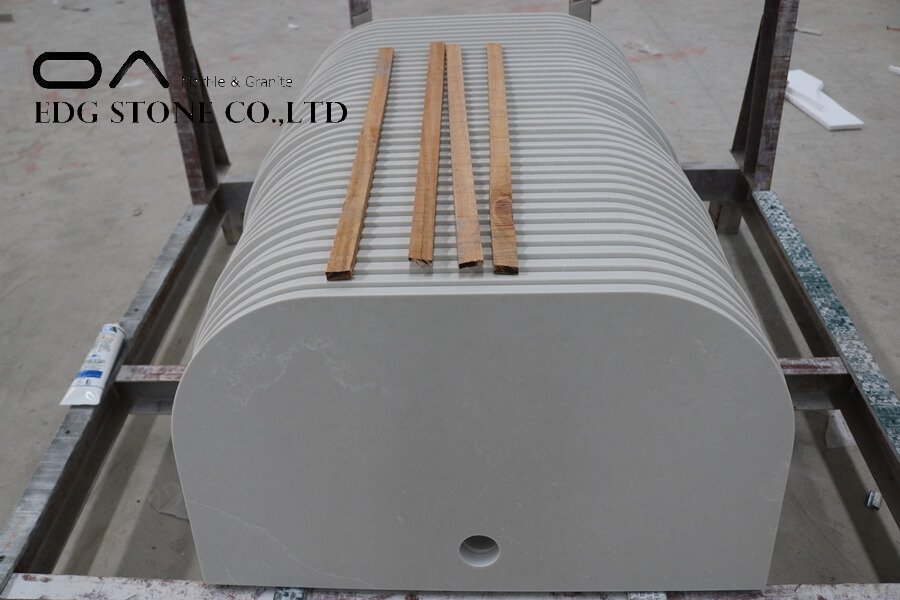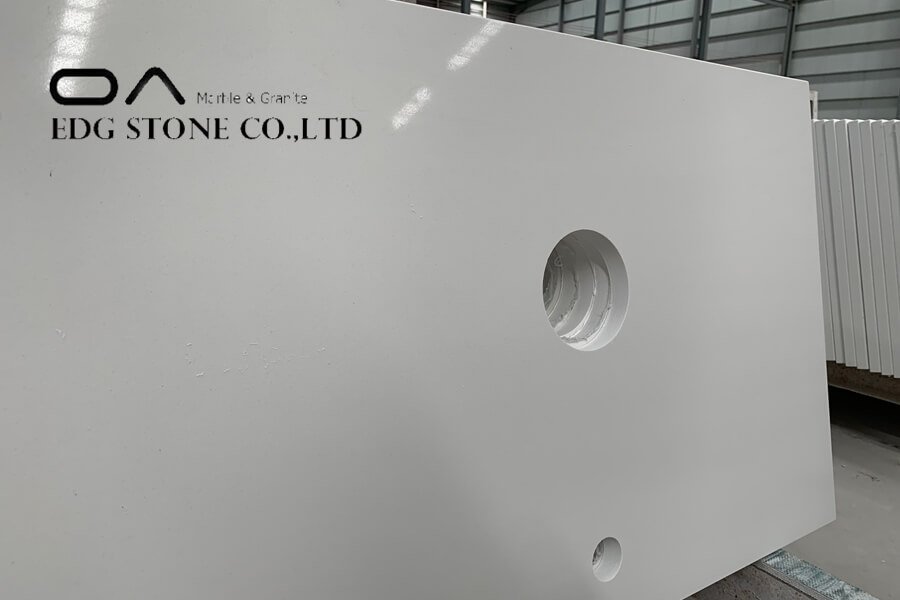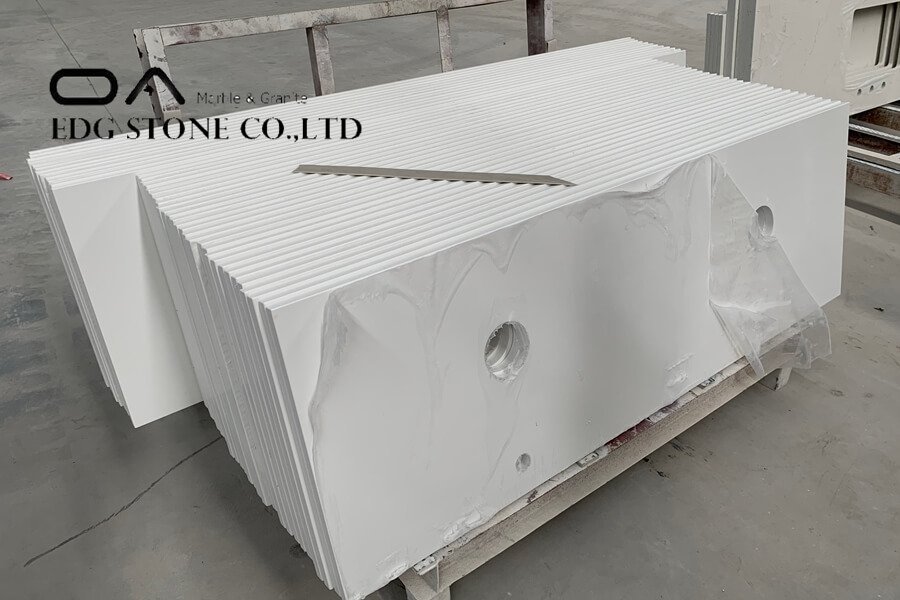1. Keep the countertop as dry as possible, and avoid long-term soaking of the refractory board to prevent the countertop from being deformed when it is opened. Artificial stone countertops should prevent the bleach and scale in the water from making the countertop lighter and affecting its appearance.
2. Prevent strong chemicals from contacting the countertop, such as paint remover, metal cleaner, stove cleaner, methylene chloride, acetone (nail polish remover), strong acid cleaner, etc. If you accidentally come into contact with the above items, immediately wash the surface with plenty of soapy water.
3. Do not allow heavy or sharp objects to directly impact the surface; oversized or overweight utensils should not be placed on the countertop for a long time; nor should they be washed with cold water and then immediately scalded with boiling water.
4. Use soapy water or a detergent containing ammonia (such as detergent) to clean it. For the scale, you can use a damp cloth to remove the scale and then wipe it with a dry cloth.
5. For knife marks, burn marks, and scratches, if the surface finish is required to be matte, use 400-600 grit sandpaper to polish until the knife marks disappear, and then use detergent and scouring pad to restore the original shape. If the surface finish is a mirror surface, first polish it with 800-1200 grit sandpaper, then use a polishing wax and wool polishing ring to polish with a low-speed polisher at 1500-2000rpm, and then clean the surface with a clean cotton cloth. For small white marks, moisten the surface with cooking oil and dry cloth.







